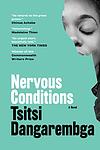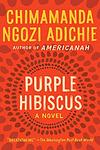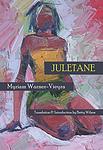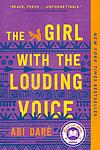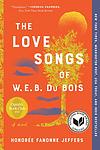Genres
The "Family" category of books encompasses stories that revolve around the dynamics, relationships, and experiences of families. These books explore the complexities of familial bonds, including love, loyalty, conflict, and forgiveness. They may focus on different types of families, such as nuclear families, blended families, or extended families, and may cover a range of themes, from coming-of-age tales to domestic dramas. Overall, the "Family" category offers a rich and diverse collection of books that delve into the joys and challenges of family life.
Date Range
Reading Statistics
Click the button below to see how many of these books you've read!
Download
If you're interested in downloading this list as a CSV file for use in a spreadsheet application, you can easily do so by clicking the button below. Please note that to ensure a manageable file size and faster download, the CSV will include details for only the first 500 books.
Download-
1. Nervous Conditions by Tsitsi Dangarembga
"Nervous Conditions" is a semi-autobiographical novel set in colonial Rhodesia in the 1960s. The story follows a young girl from a poor family who gets the opportunity to receive an education after her brother's death. Despite the struggles she faces - including culture shock, racism, and the inherent sexism in both her native and adopted cultures - she perseveres and manages to succeed. The novel explores themes of race, colonialism, and gender through the lens of a young African woman's coming-of-age story.
-
2. So Long a Letter by Mariama Bâ
"So Long a Letter" is an epistolary novel that explores the life of a recently widowed woman in Senegal. Throughout the story, she reflects on her life, her marriage, her husband's second, younger wife, and the status of women in Senegalese society. The book delves into themes of polygamy, friendship, and the struggle for women's rights in a predominantly patriarchal society. It is a poignant examination of the personal and cultural conflicts faced by women in post-colonial Africa.
-
3. Palace Walk by Naguib Mahfouz
The novel is set in Cairo during World War I and revolves around the life of a conservative Muslim family. The patriarch, a shopkeeper, has two wives and several children, and the story explores the dynamics within the family, particularly the tyrannical father's relationships with his wives and children. As the family navigates through a changing society, they encounter various challenges including political unrest, societal norms, and the struggle between tradition and modernity.
-
4. Second-class Citizen by Buchi Emecheta
"Second-Class Citizen" is a poignant narrative about a young Nigerian woman, Adah, who dreams of getting an education and moving to the United Kingdom. Despite cultural and societal obstacles, Adah manages to achieve her dream but is met with more hardship as she faces racial discrimination, an abusive marriage, and the struggle of raising five children in a foreign land. Through her resilience, she continues to strive for a better life, depicting the struggles of immigrants and the strength of women.
-
5. The Joys Of Motherhood by Buchi Emecheta
"The Joys of Motherhood" is a poignant and powerful novel that explores the life of Nnu Ego, a Nigerian woman who struggles to find fulfillment and happiness in the traditional role of motherhood. Set against the backdrop of colonial Nigeria, the story delves into themes of gender inequality, cultural expectations, and the sacrifices mothers make for their children. Through Nnu Ego's experiences, the author offers a thought-provoking examination of the complexities and contradictions of motherhood in a rapidly changing society.
-
6. Homegoing by Yaa Gyasi
This epic novel traces the lineage of two half-sisters from 18th century Ghana to present day America. One sister is sold into slavery and shipped to America, while the other is married off to a British slaver and remains in Africa. The book follows their descendants through the generations, exploring the lasting impact of slavery and colonialism on Black lives. The narrative showcases the struggles, resilience, and triumphs of each generation, providing a deep and personal view into the historical events and societal changes that shaped their lives.
-
7. In the Heart of the Country by J M Coetzee
Set in South Africa, this novel tells the story of a woman living on a remote farm who is isolated not only geographically but also emotionally and psychologically. After her father marries his young mistress, the protagonist's life spirals into madness and tragedy. The narrative explores themes of loneliness, power dynamics, and the harsh realities of life in apartheid-era South Africa, all presented through the protagonist's fragmented and unreliable perspective.
-
8. Purple Hibiscus by Chimamanda Ngozi Adichie
"Purple Hibiscus" follows the story of a 15-year-old Nigerian girl, Kambili, and her older brother Jaja, who live a privileged life in Enugu. However, their father is a religious fanatic and a domestic tyrant. The siblings are sent to their Aunty Ifeoma's home, a university professor, who provides them a taste of freedom and shows them a different way of life outside their father's oppressive rule. The novel explores themes of colonialism, religious fanaticism, and the post-colonial political situation in Nigeria.
-
9. Ancestral Voices by Etienne van Heerden
"Ancestral Voices" is a haunting novel set in South Africa during the apartheid era. The story follows a young boy who grows up in a small rural town, navigating a complex web of familial relationships and secrets. As he matures, he becomes increasingly aware of the racial and social injustices that surround him. The book explores themes of identity, heritage, and the harsh realities of life under apartheid, all weaved together with a deep sense of the mystical and the supernatural.
-
10. The Bride Price by Buchi Emecheta
"The Bride Price" is a novel that explores the life of a young Nigerian girl who, despite her father's disapproval, dreams of furthering her education. After her father's death, she is forced into an arranged marriage due to cultural traditions, but she defies the system and elopes with her lover. However, the consequences of unpaid bride price haunt her, leading to a tragic ending. The book highlights the clash between traditional African values and modern aspirations, the struggles of women in patriarchal societies, and the impact of colonialism on African cultures.
-
11. Juletane by Myriam Warner-Vieyra
The novel revolves around the tragic story of a young Antillean woman who, through her diary entries, reveals the harrowing details of her life and marriage. After moving to Africa to be with her new husband, she finds herself isolated and trapped in a world of deception and disillusionment. Her husband's indifference and infidelity, coupled with her growing sense of alienation in a foreign land, lead her down a path of despair. The narrative unfolds as her diary is read by another woman, who empathizes with her struggles and reflects on the complexities of identity, belonging, and the painful legacy of colonialism.
-
12. My Sister, The Serial Killer by Oyinkan Braithwaite
In this darkly comedic novel, a nurse named Korede finds herself repeatedly cleaning up after her sister Ayoola, who has a disturbing habit of killing her boyfriends. As Ayoola's murderous tendencies escalate, Korede is torn between her loyalty to her sister and her growing concern for the next potential victim. As secrets unravel and tensions rise, the sisters' bond is put to the ultimate test, leading to a gripping and unexpected conclusion.
-
13. Sugar Street by Naguib Mahfouz
"Sugar Street" is the final novel in a trilogy set in Cairo, Egypt, from the 1919 Egyptian Revolution through the end of World War II. It follows the lives of the al-Jawad family, focusing on the younger generation's political activism and romantic entanglements against the backdrop of a changing society. The book explores themes of modernization, colonialism, and the clash between tradition and progress.
-
14. Palace of Desire by Naguib Mahfouz
"Palace of Desire" is a novel set in Cairo in the 1920s, continuing the saga of the Cairene patriarch Al-Sayyid Ahmad and his family. It explores the dynamics of the family, the father's authoritarian rule, the sons' rebelliousness, and the daughters' submissiveness. The book also delves into the themes of love, lust, power, and the struggle between tradition and modernity in Egyptian society. The narrative is a blend of social realism and psychological insight, offering a vivid portrait of a society in transition.
-
15. The Other Americans by Laila Lalami
"The Other Americans" by Laila Lalami is a compelling and intricate novel that explores the interconnected lives of a diverse group of characters living in a small California town. When a Moroccan immigrant is killed in a hit-and-run accident, the incident sets off a chain of events that uncover hidden secrets, racial tensions, and the complexities of identity in America. Through multiple perspectives, Lalami skillfully delves into themes of love, loss, and the search for belonging, ultimately painting a vivid portrait of contemporary American life.
-
16. The Death of Vivek Oji by Akwaeke Emezi
The novel unfolds the mysterious circumstances surrounding the death of a young Nigerian named Vivek Oji. Through a non-linear narrative and multiple perspectives, the story delves into Vivek's complex identity and the struggles with gender, family expectations, and societal norms in a contemporary Igbo community. As the characters grapple with their grief and the secrets Vivek left behind, the novel explores themes of love, acceptance, and the liberating power of embracing one's true self. The poignant tale reveals the transformative impact Vivek had on the lives of those around him, even as they come to terms with the enigmatic nature of his life and untimely death.
-
17. The Girl With The Louding Voice by Abi Daré
The novel follows the inspiring journey of a young Nigerian girl who yearns for an education and a better life beyond the confines of her small village and the oppressive customs that limit women's opportunities. Despite being trapped in a series of servitudes after being sold into marriage at a young age, she refuses to let her dreams be silenced. With indomitable spirit and determination, she navigates through a myriad of challenges, using her "louding voice"—her bold, resolute inner voice—to speak out for herself and others like her, in pursuit of her ambition to learn and to be heard in a world that often tries to quiet the voices of girls and women.
-
18. Behold the Dreamers by Imbolo Mbue
This novel explores the lives of two families in New York City during the 2008 financial crisis. One family is a wealthy couple who live a luxurious lifestyle due to their Wall Street connections, while the other family is a pair of Cameroonian immigrants who are trying to make ends meet. As the financial crisis hits, both families face challenges that test their relationships, their dreams, and their understanding of the American Dream.
Reading Statistics
Click the button below to see how many of these books you've read!
Download
If you're interested in downloading this list as a CSV file for use in a spreadsheet application, you can easily do so by clicking the button below. Please note that to ensure a manageable file size and faster download, the CSV will include details for only the first 500 books.
Download